Corpus Christi Blog

The Epiphany Choice: Do you respond to Jesus like the Magi or like Herod?
01-01-2026Weekly ReflectionJen Arnold, M.A.The Solemnity of the Epiphany of the Lord is the day the Church recognizes the universality of Jesus’ mission of redemption and salvation. The word “epiphany” comes from the Greek epiphaneia, which means “manifestation” or “appearance.” The Magi who followed the star to find the newborn King of the Jews were not Jews themselves, but came from other lands. At the end of their journey, when the Magi encountered Jesus in the arms of His mother, Mary, it signified his manifestation to all the world. Epiphany celebrates that the messiah, who came as the King of the Jews, is accessible and King to us all.
READ MORE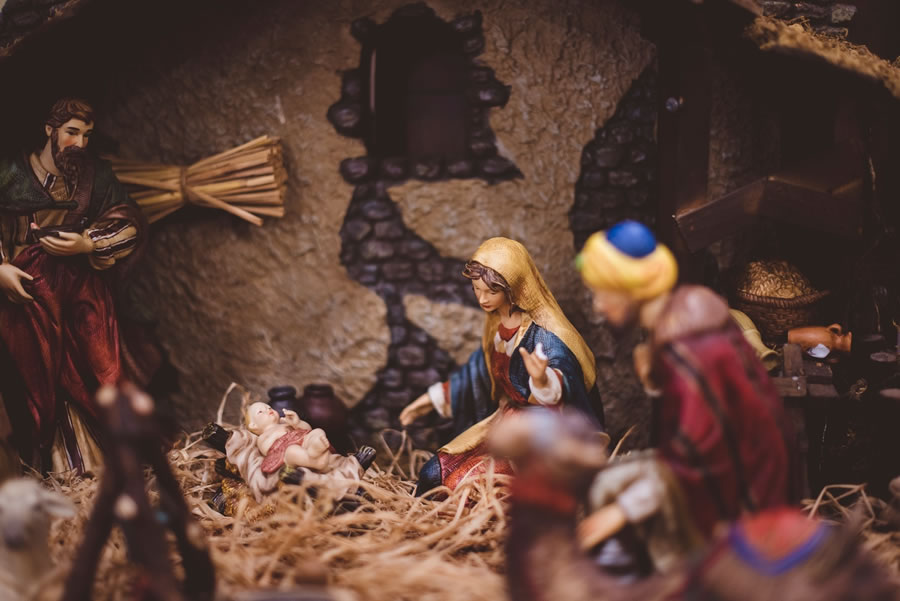
The Domestic Church — How to be a Holy Family
12-28-2025Weekly ReflectionJen Arnold, M.A.The Feast of the Holy Family is a good reminder that the family is the domestic church. Jesus learned his Jewish faith from his mother and father, Mary and Joseph. At home, he studied scripture, learned prayers, and celebrated liturgical feasts. Through his family, Jesus first learned that his Heavenly Father was loving and merciful, and that heaven was his eternal home. The Holy Family provides a perfect model of a domestic church for our own families to follow.
READ MORE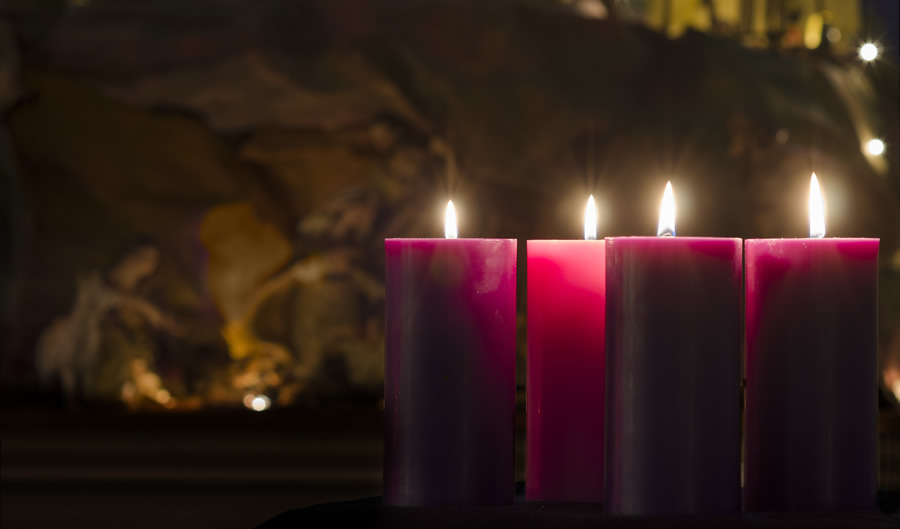
O Emmanuel
12-21-2025Weekly ReflectionJen Arnold, M.A.It is the fourth and final Sunday of Advent. We have been reflecting on some of the titles for Jesus taken from the ancient prayers of the O Antiphons, which the Church sings during Advent in anticipation for the coming Messiah — Wisdom, Lord, Root of Jesse, Key of David, Rising Dawn, King of Nations, and Emmanuel. As humanity cries out for its savior, the Church uses these various titles to emphasize the truths of who this savior will be and the revelations that will come with him. Now, we will take a look at his most important title, the one which all of the others point to as the climax.
READ MORE
O Key of David
12-14-2025Weekly ReflectionJen Arnold, M.A.As we continue to await Christmas, we come to the third installment in our four-part Advent series exploring the titles of the Messiah from the O Antiphons, the ancient prayers sung by the Church in the final days before Christmas. Each Antiphon reveals a facet of Christ’s identity and mission foretold in Scripture — He is Wisdom, Lord, Root of Jesse, Key of David, Rising Dawn, King of Nations, and Emmanuel. We have already covered the titles of Wisdom and Root of Jesse. Now we continue to meditate with anticipation, the coming Messiah under another title:
READ MORE
O Root of Jesse
12-07-2025Weekly ReflectionJen Arnold, M.A.As we begin the second week of Advent, the Church invites us to deepen our understanding of whom it is we are awaiting. Advent is not simply a countdown to Christmas; it is a season of preparation for the coming of Christ—past, present, and future. This year, we are reflecting on four prophetic titles for the coming Messiah from the ancient O Antiphons. From within the ancient prophecies of Isaiah and other Old Testament texts, seven titles of the promised Messiah are revealed to us: Wisdom, Lord, Root of Jesse, Key of David, Rising Dawn, King of Nations, and Emmanuel. Each title helps us recognize how Jesus fulfills God’s plan of salvation throughout history.
READ MORE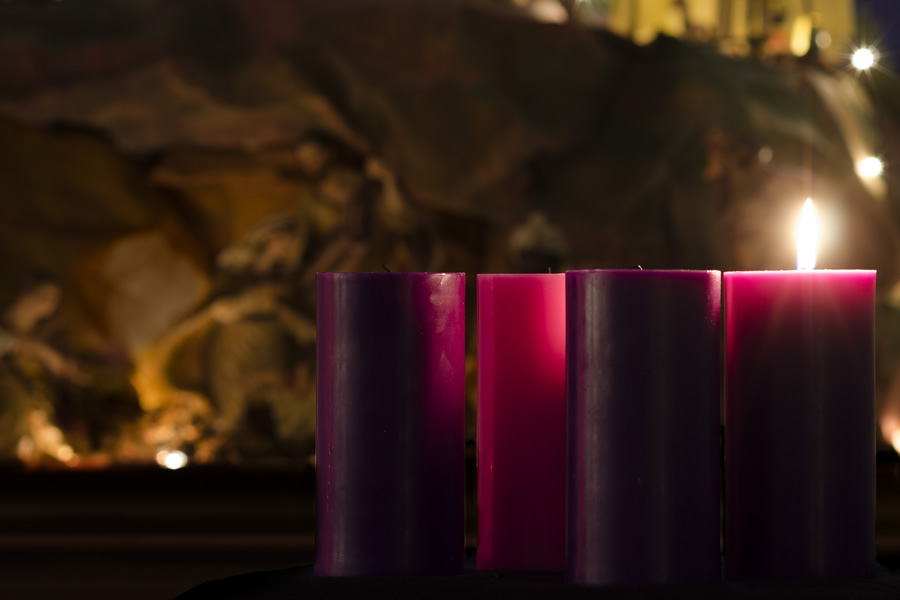
O Wisdom
11-30-2025Weekly ReflectionJen Arnold, M.A.The Church is entering into a new liturgical year with the anticipation of the coming of Jesus Christ in the season of Advent. For this year’s Advent reflection series, we will reflect on four of the prophetic titles for the Messiah taken from the O Antiphons. The O Antiphons are among the Church’s most ancient prayers, dating back at least to the eighth century. They are sung as part of Evening Prayer (Vespers) in the Liturgy of the Hours from December 17-23. Each antiphon begins with the exclamation “O” followed by a prophetic title for the Messiah found in the Old Testament, especially the Book of Isaiah: Wisdom, Lord, Root of Jesse, Key of David, Radiant Dawn, King of the Nations, and Emmanuel. These titles use theological imagery to reflect the hope of the coming Christ, and they serve as poetic invocations and foreshadowing into the mystery of who Christ is, what he fulfills, and how he continues to come into our lives today. As we move through this season of Advent, we will reflect on four of these messianic titles, focusing on one each week.
READ MORE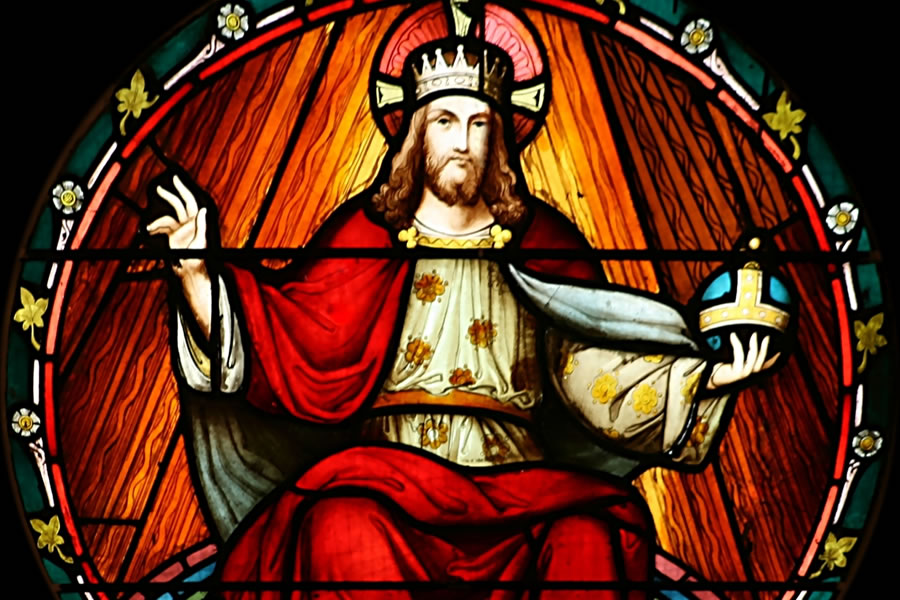
The Cross is the Throne of Christ Our King
11-23-2025Weekly ReflectionJen Arnold, M.A.Today we celebrate the Solemnity of Our Lord Jesus Christ, King of the Universe. Of all the kings and emperors that have ruled on this earth over the millennia, none have been or will ever be as mighty and powerful as Jesus. Earthly kings rule from thrones as symbols of majesty, power, and glory. They are often ornately adorned with gold, and when the king sits on his throne, he is surrounded by his loyal subjects. The throne of Christ the King, however, is not made of beautiful, expensive, or comfortable materials, but of rough wood. The cross, which for the Roman Empire was an instrument of humiliation and torture, is the exalted throne of the crucified Lord in the light of faith. The Catechism tells us, “The way of perfection passes by way of the Cross. There is no holiness without renunciation and spiritual battle” (CCC #2015). So, through Jesus Christ, the cross is transformed from a mere place of suffering to the seat of his kingship. Let’s take a closer look at the paradox of the cross as the throne of the almighty King of the Universe.
READ MORE
Mary — Model of the Church
11-16-2025Weekly ReflectionJen Arnold, M.A.This week, the Catholic Church commemorates the Feast of the Presentation of the Blessed Virgin Mary on November 21. I would like to explain the foundations and significance of Mary’s presentation, and then use it as a springboard to demonstrate just a few of the ways in which Mary is a model for our Church today.
READ MORE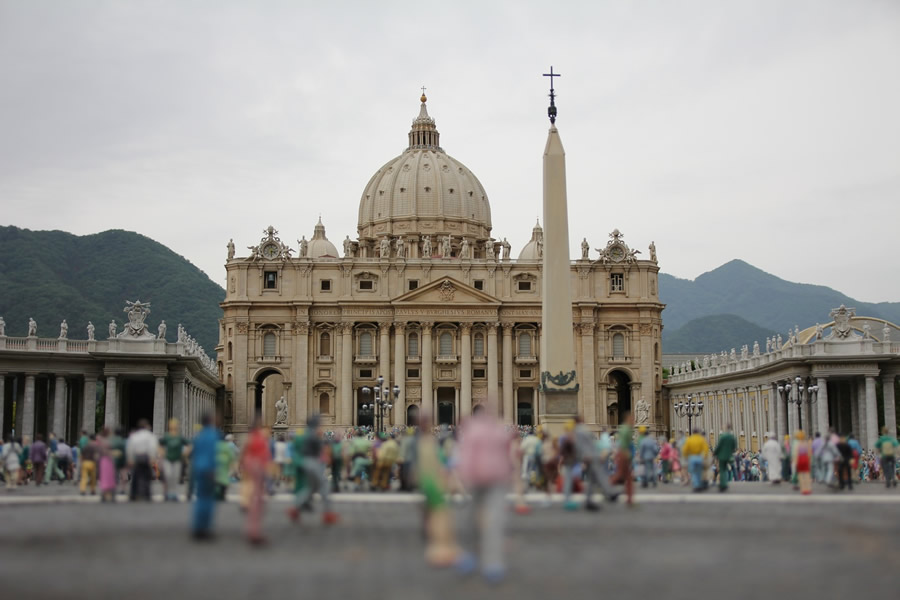
Sola Scriptura Isn’t Sufficient
11-09-2025Weekly ReflectionJen Arnold, M.A.One thing that unites all Christians is a shared belief in Scripture as the inspired Word of God and a source of divine revelation. However, one of the most significant sticking points between Catholics and our Protestant brethren is whether Scripture is the only source of authority. The Catholic Church relies on three sources for faith and practice — the divine revelation of Sacred Scripture and Sacred Tradition and the authority of the Magisterium to faithfully interpret divine revelation — while Protestants adhere to the doctrine of sola scriptura, which holds that Scripture alone is the sole authority for Christian faith and practice.
READ MORE
Dying Well — Wisdom from St. Bellarmine
11-02-2025Weekly ReflectionJen Arnold, M.A.On All Souls’ Day the Church invites us to remember and pray for all the faithful departed. It is a day where we acknowledge that death is the one certainty that each of us must face, but it is also a day of hope because we trust in God’s mercy and his promise of eternal life. For Catholics, All Souls’ Day is not a gloomy day of remembrance but an invitation to live now in such a way that we may die well, reconciled with God and at peace. Considering death as the most important event for which a person ought to prepare, St. Robert Bellarmine, a 16th-century Jesuit and Doctor of the Church, wrote a spiritual treatise entitled The Art of Dying Well (De Arte Bene Moriendi) to aid souls in obtaining eternal happiness. While written over four hundred years ago, Bellarmine’s wisdom remains as relevant today as it was then, so let’s explore some key principles for dying well.
READ MORE